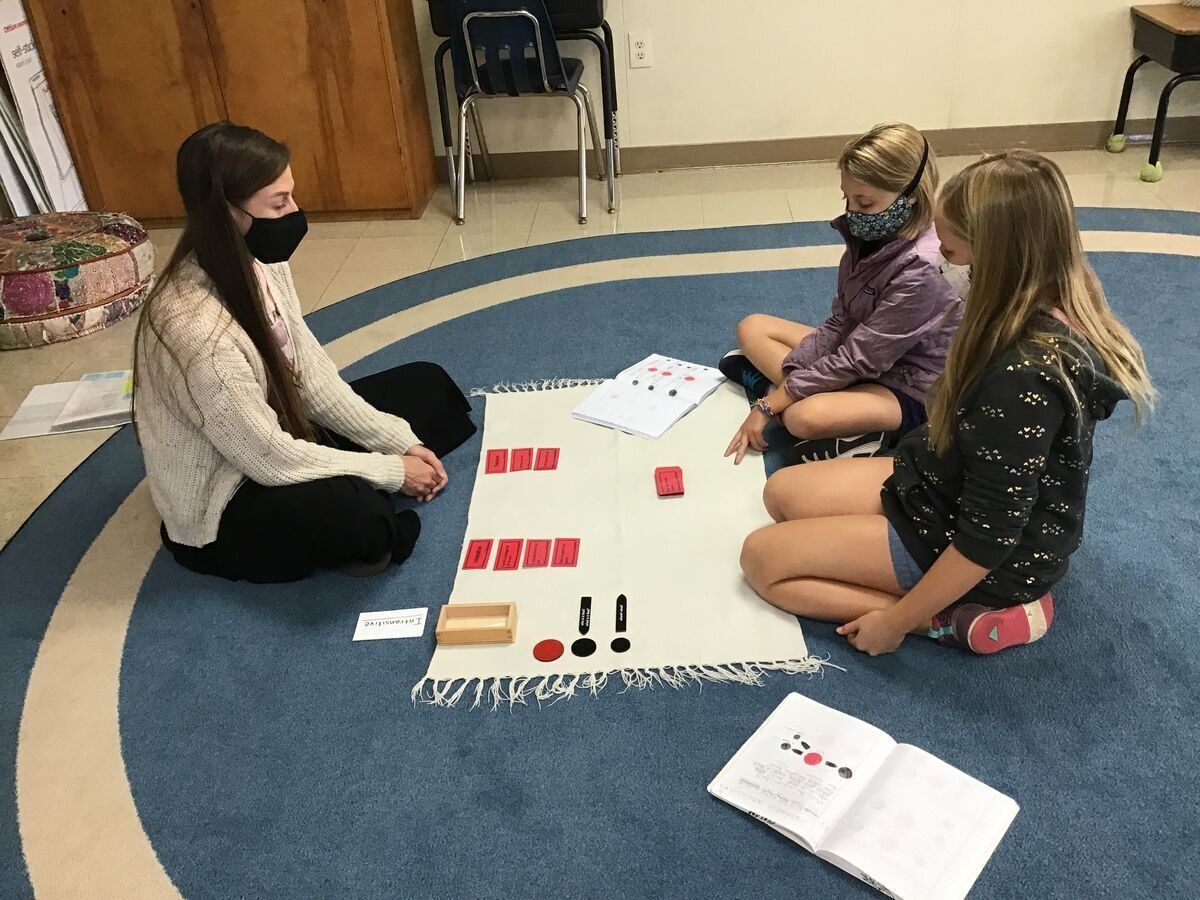Why Observation is So Important

Why Observation is So Important
Maria Montessori
Maria Montessori was a scientist and medical doctor, so observation was nothing new to her. When she applied her medical learnings to the early development of children, observation was at the core of her approach. Much like conducting a scientific experiment, Montessori would manipulate elements of the classroom environment and lessons and aim to understand how these changes impacted the children. She carefully watched and observed each child at work.
The Tool of Observation
Today, observation is an integral and ongoing part of a Montessori teacher’s work. This is an essential part of lesson planning and classroom management. Through careful observation, the teacher is able to gauge what concepts or skills each child has mastered and when they are ready to be introduced to new work and challenges. In a Montessori classroom, you can expect each child to be carefully observed by the teacher so that their individual intellectual needs are met. The teacher will not only observe the child as an individual; they will also observe the environment and atmosphere and how it serves the child. Something as simple as a piece of furniture disturbing the flow of the classroom can be sensed and corrected by the acute observation of a Montessori teacher.
“She [the teacher] observes in order to recognize the child who has attained the power to concentrate and to admire the glorious rebirth of his/her spirit.” –Maria Montessori, The Absorbent Mind
Record Keeping
Montessori teachers keep detailed records on all of their children as they observe throughout the day. A teacher may share these observations during parent-teacher conferences so that as a parent, you too can have a deeper understanding of your child’s mental, social, and academic development. They will observe what work your child enjoys, what they avoid, how they interact socially, how they solve problems, and much more. This is how Montessori takes a more individualized approach than other schooling methods.
Letting the Child Lead
The art of observation is all about letting the child show you and tell you what you need to know about them. Observation can be an amazing tool to allow your child to communicate with you what their needs are. It can be beneficial to take a step back and let the child lead you and show you what they are ready for. This is the approach we take at a Montessori school.
As a Montessori parent, you can also use the tools of observation at home by paying attention to your child’s eating habits, sleeping patterns, play, social habits, and temperament. By observing things like this, you can gain a better understanding of the needs of your child and how you can support them on their journey through childhood.
Programs
Montessori Center School admits students of any race, color, religion, national and ethnic origin, gender identity, and sexual orientation to all rights, privileges, programs and activities general recorded or made available to students at the School. It does not discriminate on the basis of race, color, religion, national and ethnic origin, gender identity or sexual orientation in the administration of its educational programs, admission and tuition assistance policies, and athletic or other school-administered programs. Non-Profit Education Organization, License No. 426205239


